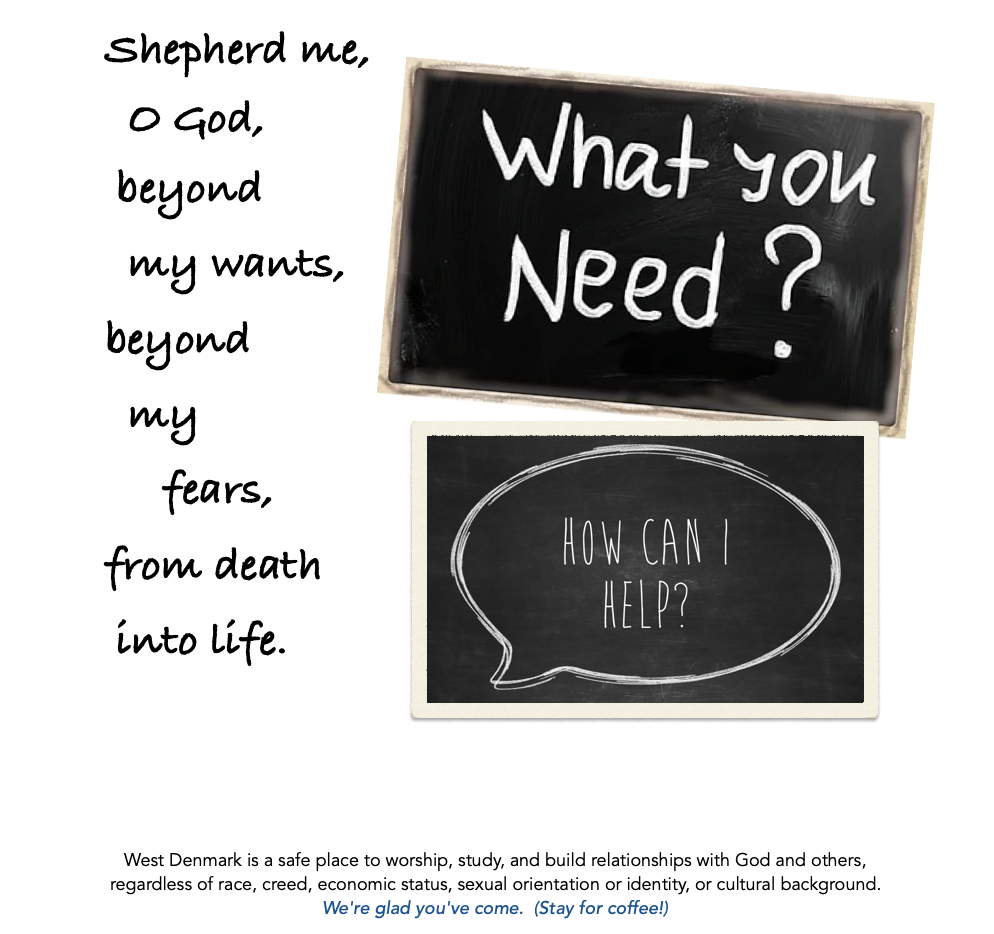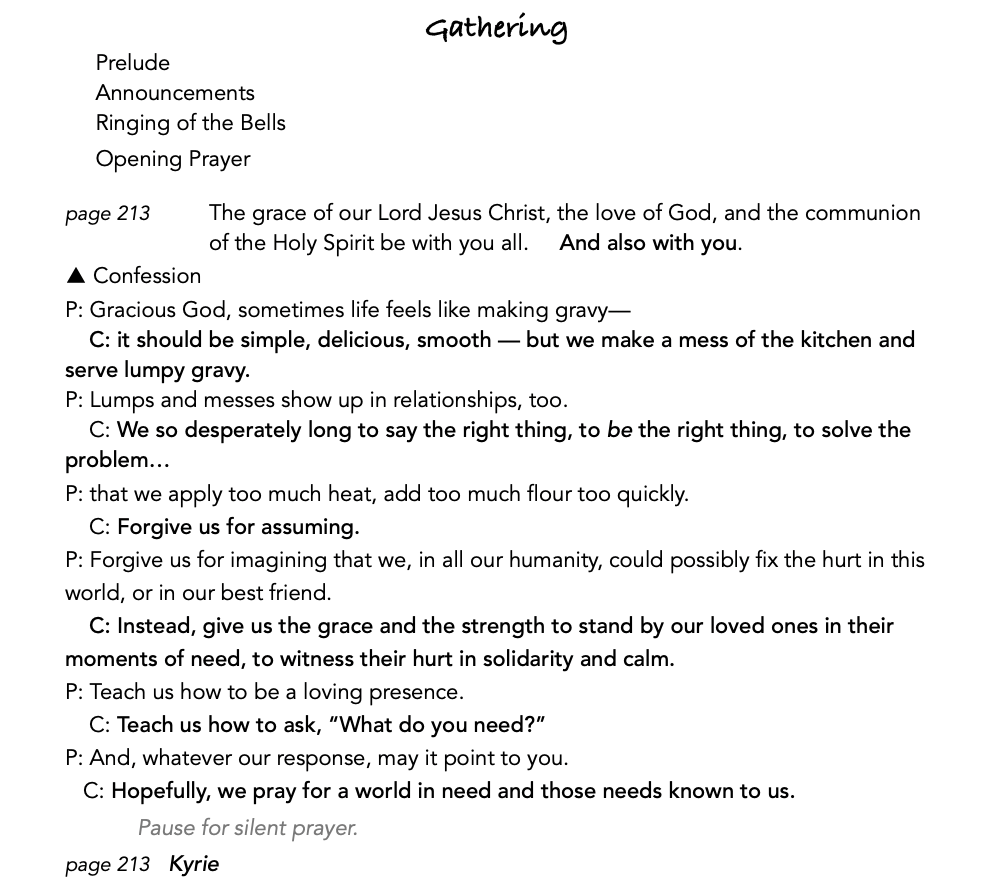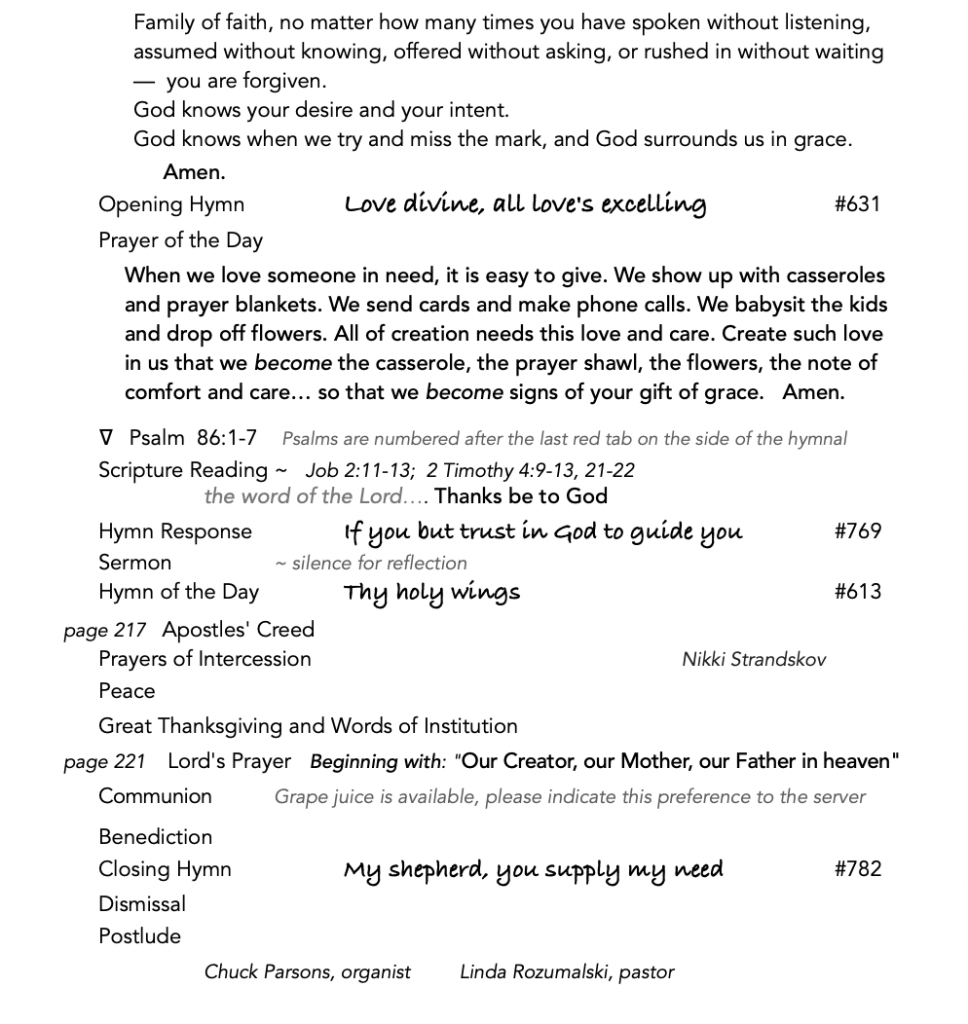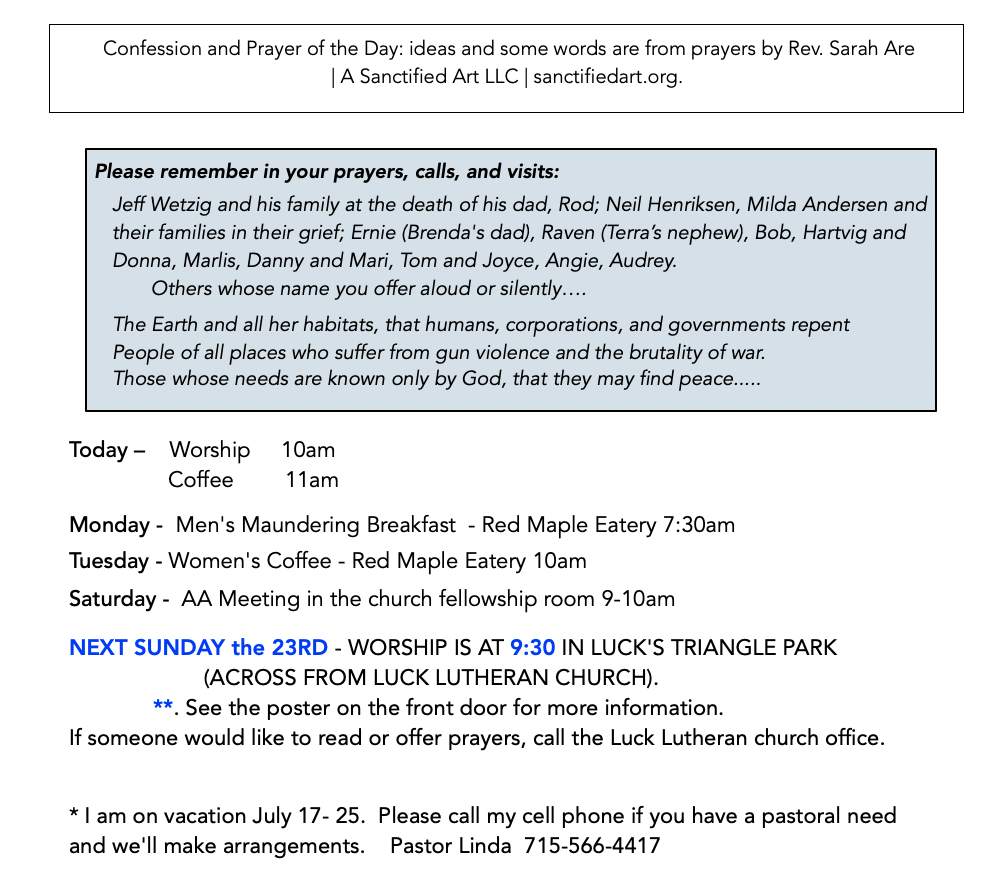Audio Recording



The first reading comes from the book of Job, after he has lost everything and sits alone in his affliction. Job, chapter 2
“Now when Job’s three friends heard of all these troubles that had come upon him, each of them set out from his home—Eliphaz the Temanite, Bildad the Shuhite, and Zophar the Naamathite. They met together to go and console and comfort him. 12When they saw him from a distance, they did not recognize him, and they raised their voices and wept aloud; they tore their robes and threw dust in the air upon their heads. 13They sat with him on the ground for seven days and seven nights, and no one spoke a word to him, for they saw that his suffering was very great.”
The second reading is from the second letter to Timothy. Purportedly, Paul is writing from prison in Rome. 2 Timothy 4:9-18, 21-22
9 Do your best to come to me soon, 10for Demas, in love with this present world, has deserted me and gone to Thessalonica; Crescens has gone to Galatia, Titus to Dalmatia. 11Only Luke is with me. Get Mark and bring him with you, for he is useful in my ministry. 12I have sent Tychicus to Ephesus. 13When you come, bring the cloak that I left with Carpus at Troas, also the books, and above all the parchments. 21Do your best to come before winter. Eubulus sends greetings to you, as do Pudens and Linus and Claudia and all the brothers and sisters.22The Lord be with your spirit. Grace be with you.
The word of the Lord…… thanks be to God
This week’s topic question recognizes that we all have needs and that we need each other. And, while our basic needs are universal – the need for acceptance, affection, food, shelter, meaning – each need is weighted, experienced and interpreted by each one of us uniquely. So, we can’t assume to know what is best for others. We can’t assume that we understand what someone is feeling based on our own similar situation. We can’t know the backstory that is triggering their response or attitudes. We can’t – unless we ask.
And, chances are, if pushed to reflect on your own needs, priorities, and desires, you might find that it is not as straightforward as you thought. We are not consistent or logical creatures. Things process in our thoughts, our intentions, one way and quite often come out of our bodies and behavior as something altogether different. This is because we may not really know what it is we ourselves need – unless we ask.
When our son, Jan, was little – just out of toddlerhood – he would be playing outside or we’d be on a walk and he’d say he couldn’t go on because his feet were tired. “Your feet are tired?” “Yes.” “Do they hurt? Do you have a pebble in your shoe?” “No. They are tired.”
I’d carry him home, or take off his shoes and socks and rub his little feet, checking for red spots to see if his shoes were fitting okay. At his wellness checkups I asked about his arches and stance. Everything seemed okay, but he would still complain that his feet were tired. I finally figured out that he was hungry, but he couldn’t distinguish hunger. To him, the need for food settled into his feet, and he couldn’t go on.
I think we are all like little Jan in our own ways. It might be that we are ashamed of our needs, or that we were ridiculed for something as a child, or that we’re too busy or distracted to give our bodies and spirit’s the time they need to flourish, and so the original need gets buried and covered up until some other part of us is enlisted to get our attention. The more basic the need that was once thwarted, the more expansive its later efforts for fulfillment.
So, if you find yourself trying to track down what it is you need, your list might start with something that seems a bit trivial. “I need to go through and clean every room and corner of my house,” you might say. “If I just had a clean, neat, orderly space, where everything is where it belongs and I can find what I’m looking for, my life would be 100% better. Then I could be happy, then I could get things done, I could invite friends over, I could feel proud of myself, I could……. I could prove to myself that I am a capable and worthwhile person. Because, how hard can it be to clean your house?”
Do you see what happened? It started out as a simple, clearly stated need. “I need to clean my house.” But as the self-talk progressed, deeper needs came to the surface. A need for companionship and fun, a need to be justified or prove yourself (to whom, I wonder). Most likely to someone like a critical or distracted parent who is not in your house to judge it or you. The need to feel worthwhile and valuable and capable is a deep, old, primal need. Right there next to the need to be cherished, treasured in your being, not for your doing.
Needs can be difficult to parse out. So, if you ask someone, “What do you need?”, be prepared to sit down, it might take a while. Be prepared to ask for the second edition, to stay connected and ask again. In the meantime, you might volunteer to help them clean.
In the midst of Job’s afflictions, three of his friends promptly leave their homes and come to him. They tear their garments, weep loudly, and sit with him for seven days, saying nothing. Can you imagine that? Their response is the ministry of presence, of true solidarity, of seeing his excruciating pain and joining him there in the midst of it. This is good.
Later on in the story, they try to speed up the process and help him come to his senses. They tell him to give up his stalemate with God and admit that his sufferings were his own fault in some inscrutable way – and to repent. But Job refuses, maintaining his innocence and demanding God’s accountability. His friends want him to cave in to conventional wisdom that bad things do not happen to good people without just cause. Job won’t have it. But even in their arguing, the friends stay with him in his suffering, unable to draw it to a settled rest, yet not willing to leave.
This is a ministry beyond most of us. We can’t tolerate being helpless in the indeterminable time it takes God to respond. We want to offer help that has an effect, and that has a terminus – like bringing a casserole, or helping sort through the garage. And there’s nothing wrong with that – because caregivers have needs, too.
Beaten and imprisoned, Paul writes to Timothy with a straightforward request: “Come quickly.” He lists those who have abandoned him, but says, “I hope that God doesn’t hold it against them!” In the clarity of confinement and being stripped of every distraction, Paul gets to his basic needs. He doesn’t need revenge. Instead, he asks for companionship, and his cloak, his books and his papers. You’ve got to love how human the scriptures are some times! Paul asks for what we all need—for someone to come quickly, to gather the items we want, and to show up.
What do you need? It’s a simple question, but a daunting one. When we ask it of ourselves, it means some change is being called for. “I need to earn more money.” “I need to change my lifestyle and diet.” “I need a friend.” “I need more time.” In each of these needs, something’s got to change, something’s got to be reconfigured, reprioritized. Life changes are hard, and come with risks, and might involve or upset other people we care about. Simple questions don’t always have simple solutions. But the need remains until it is satisfied.
When we ask the question of someone else, we need to know our boundaries, what we can offer, what we have to give. I think that’s why we hesitate to ask, because we fear we will be overwhelmed with the reply, sucked in over our heads. Chances are that won’t happen. Chances are your listening, open heart is all that is required of you.
“Shepherd me, O God, beyond my wants, beyond my fears, from death into life.” I love this line. It makes a good mantra. It recognizes that the need isn’t ours to sort out on our own, or to bear with someone else alone. We have a companion who is unseen, but not unknown. Help comes in all forms – from nature’s healing balm, to a random act of kindness, to a persistent friend, to an insight that pops suddenly to mind. God’s Spirit is subtle.
What do you need? Ask the question, and give God space. Bring your presence into the presence of prayer, and be kind to yourself as you feel your way forward through the tangle of distractions to what it is you really need in your life to thrive. That is what God wants for each of us, for all of creation: life abundant, the fulfillment of our communal and unique needs so that we each can be the child of God.
“Shepherd me, O God, beyond my wants, beyond my fears, from death into life.”
What do you need?
